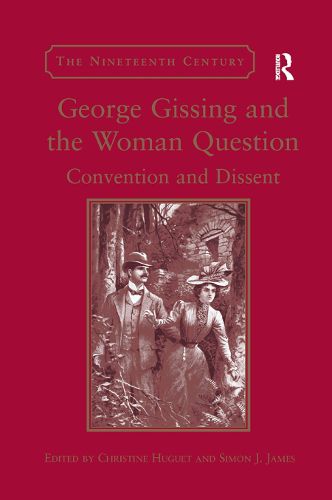Readings Newsletter
Become a Readings Member to make your shopping experience even easier.
Sign in or sign up for free!
You’re not far away from qualifying for FREE standard shipping within Australia
You’ve qualified for FREE standard shipping within Australia
The cart is loading…






Approaching its subject both contextually and comparatively, George Gissing and the Woman Question reads Gissing’s novels, short stories and personal writings as a crux in European fiction’s formulations of gender and sexuality. The collection places Gissing alongside nineteenth- and twentieth-century authors as diverse as Paul Bourget, Ella Hepworth Dixon, May Sinclair and Theodore Dreiser, theorizing the ways in which late-Victorian sexual difference is challenged, explored and performed in Gissing’s work. In addition to analyzing the major novels, essays make a case for Gissing as a significant short story writer and address Gissing’s own life and afterlife in ways that avoid biographical mimetics. The contributors also place Gissing’s work in relation to discourses of subjectivity and intersubjectivity, identity, public space, class and labour, especially literary production. Increasingly viewed as a key chronicler of the late Victorian period’s various redefinitions of sexual difference, Gissing is here recognized as a sincere, uncompromising chronicler of social change.
$9.00 standard shipping within Australia
FREE standard shipping within Australia for orders over $100.00
Express & International shipping calculated at checkout
Approaching its subject both contextually and comparatively, George Gissing and the Woman Question reads Gissing’s novels, short stories and personal writings as a crux in European fiction’s formulations of gender and sexuality. The collection places Gissing alongside nineteenth- and twentieth-century authors as diverse as Paul Bourget, Ella Hepworth Dixon, May Sinclair and Theodore Dreiser, theorizing the ways in which late-Victorian sexual difference is challenged, explored and performed in Gissing’s work. In addition to analyzing the major novels, essays make a case for Gissing as a significant short story writer and address Gissing’s own life and afterlife in ways that avoid biographical mimetics. The contributors also place Gissing’s work in relation to discourses of subjectivity and intersubjectivity, identity, public space, class and labour, especially literary production. Increasingly viewed as a key chronicler of the late Victorian period’s various redefinitions of sexual difference, Gissing is here recognized as a sincere, uncompromising chronicler of social change.